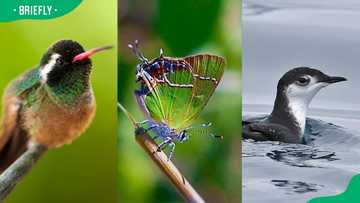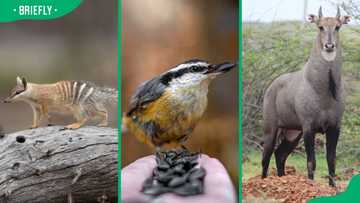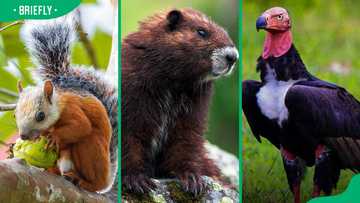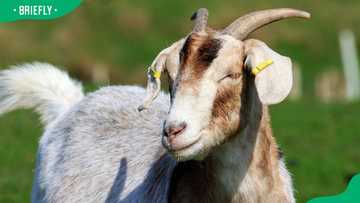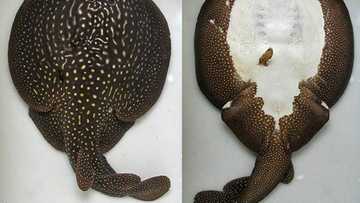Animals with Down syndrome: What is real and what is not?
Down syndrome (trisomy 21) is a genetic condition often seen in humans, although some animals have been seen to exhibit similar traits. The condition results from an extra copy of chromosome 21, which may not occur in other species due to differences in chromosomal structures and numbers. Are there animals with Down syndrome, or have they been mistakenly labelled?
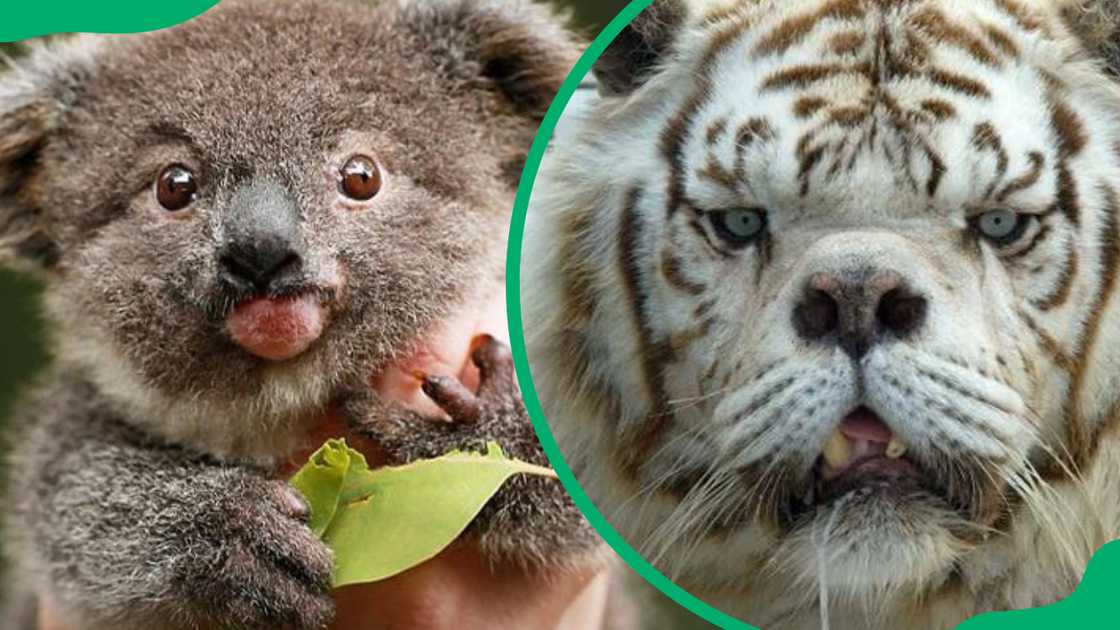
Source: UGC
TABLE OF CONTENTS
The misconception surrounding animals with Down syndrome stems from the significant differences in genetic structure between humans and other species. Some animals are born with deformities that are consistent with the condition.
Animals with Down syndrome examples
The following are examples of animals thought to have trisomy 21. Animal health experts have disputed these claims;
Kenny the Tiger
Kenny, a rare white tiger, was often mistakenly believed to have Down syndrome due to his genetic facial deformities. However, these deformities resulted from generations of inbreeding, not the chromosomal mutation responsible for trisomy 21 in humans.
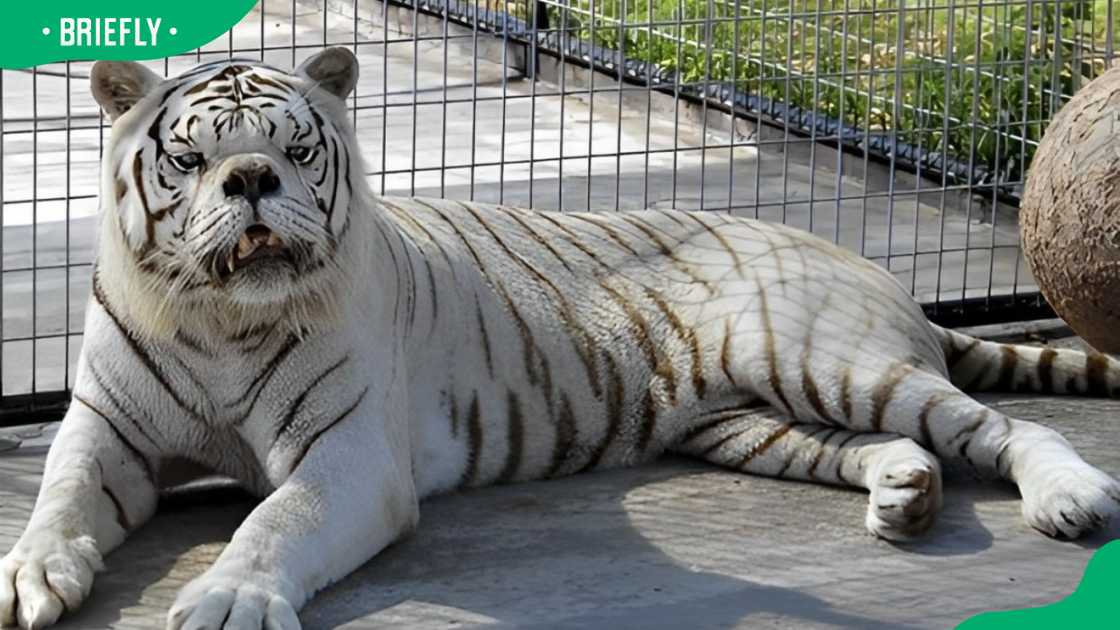
Source: Getty Images
Otto the Kitten
Otto, a kitten from Turkey, also gained internet fame as an animal with Down syndrome. His abnormal facial features, including a flattened nose and wide-set eyes, were likely caused by a genetic mutation or hormone deficiency, not trisomy 21.
According to Dr. Sarah Wooten, DVM, CVJ, it is impossible for cats to have this condition because they do not have chromosome 21. They have 19 pairs of chromosomes (38 total).
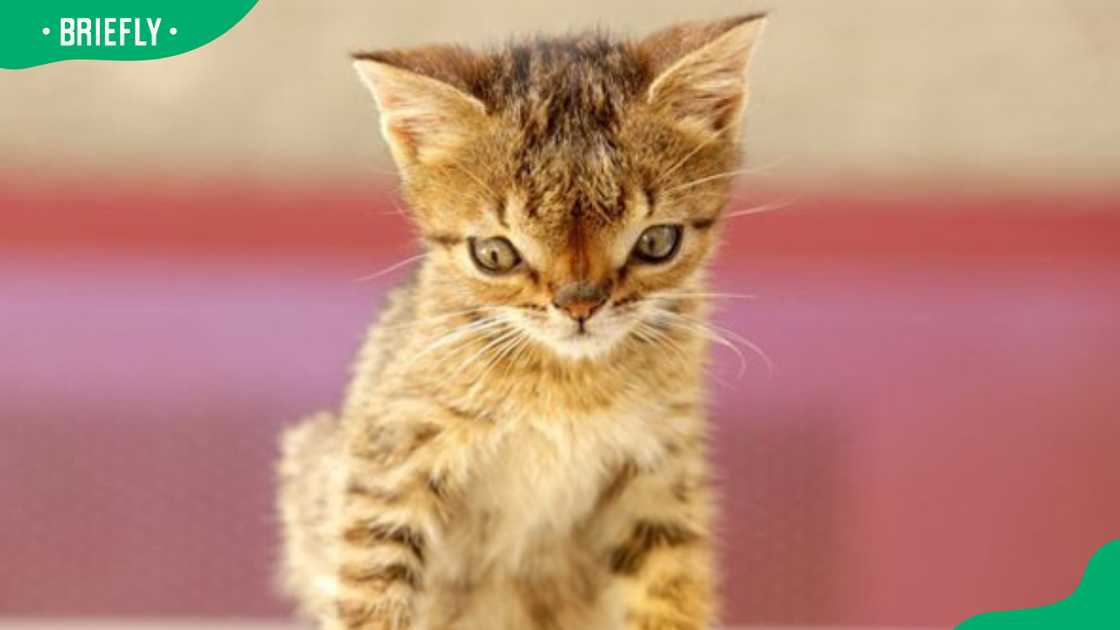
Source: UGC
Can animals have Down syndrome?
Several online sources offer conflicting information about the presence of trisomy 21 in animals other than humans. There is no scientific evidence that backs up the existence of such conditions in animals. Inbreeding is one of the major causes of deformities in various species.
What animals can have Down syndrome?
While animals cannot have trisomy 21, primates have been diagnosed with conditions similar to it. A good example is chimpanzees, which have been documented with a genetic disorder called trisomy 22, which results in symptoms resembling Down syndrome but results from an extra copy of chromosome 22.
Kanako, a Japanese chimp, is only the second confirmed case of a chimpanzee with trisomy 22. This disorder has stunted her growth, left her blind, and caused congenital heart disease and underdeveloped teeth. The first confirmed case was documented in 1969, but the chimp died before its second birthday.
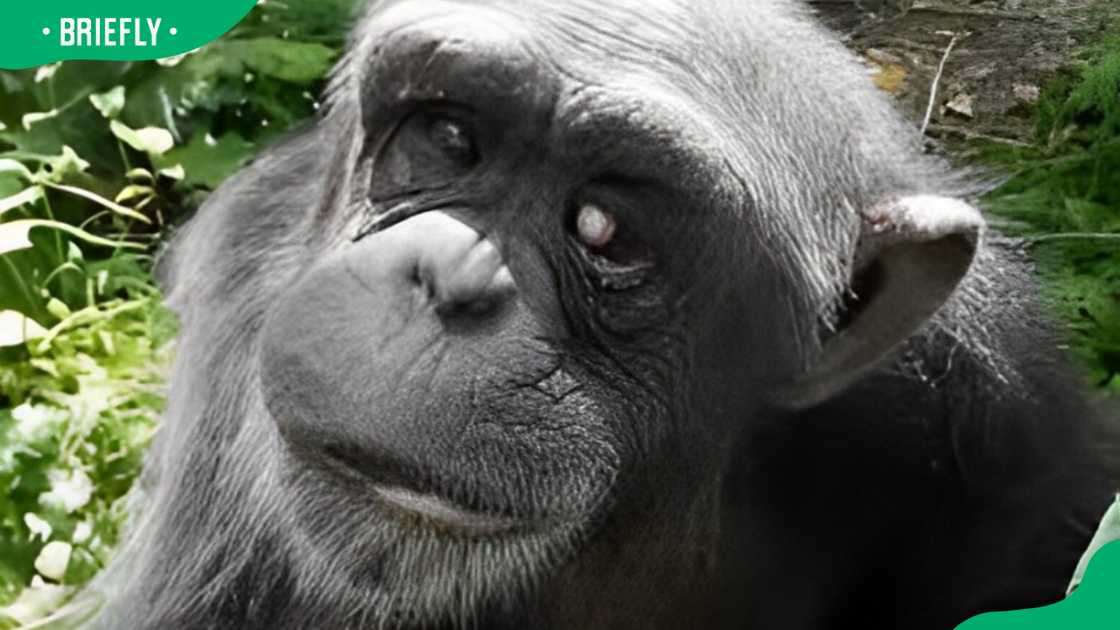
Source: UGC
Can dogs have Down syndrome?
Down syndrome in domesticated dogs has never been diagnosed, and Petmd gives three possible explanations as to why that is the case;
- Dogs with similar types of chromosomal abnormalities usually experience early mortality.
- Genetic testing specifically for identifying trisomy 21 in dogs has not been conducted.
- The condition is not known to exist in canines.
Dogs can have other congenital or genetic conditions that are similar to those associated with Down syndrome. Common examples include;
- Congenital hypothyroidism
- Portosystemic shunt
- Congenital hydrocephalus
- Pituitary dwarfism
- Growth hormone deficiency
Can a horse have Down syndrome?
Horses have never been diagnosed with trisomy 21, but they suffer from other chromosomal abnormalities that affect their reproduction and lead to congenital disabilities. Common chromosome-related conditions include;
- Equine Turner Syndrome: In this condition, a mare is missing one X chromosome (XO instead of XX). These mares have small body sizes, poor conformation, angular deformities, and small, inactive ovaries. They are infertile.
- Sex-Reversal Syndrome: Some horses have the outward appearance of a mare but are genetically male (XY instead of XX). These infertile horses might be bigger-bodied than most mares, with small, inactive ovaries and a nontubular uterus. The reverse can also occur, i.e. outwardly male horses with an XX sex chromosome. They exhibit male-like external genitalia but lack sperms and ovarian tissue.
- Autosomal Translocations: These occur when there is an interchange of chromosomal segments between different chromosomes. Translocations can cause repeated early embryonic loss, but some affected mares can still reproduce.
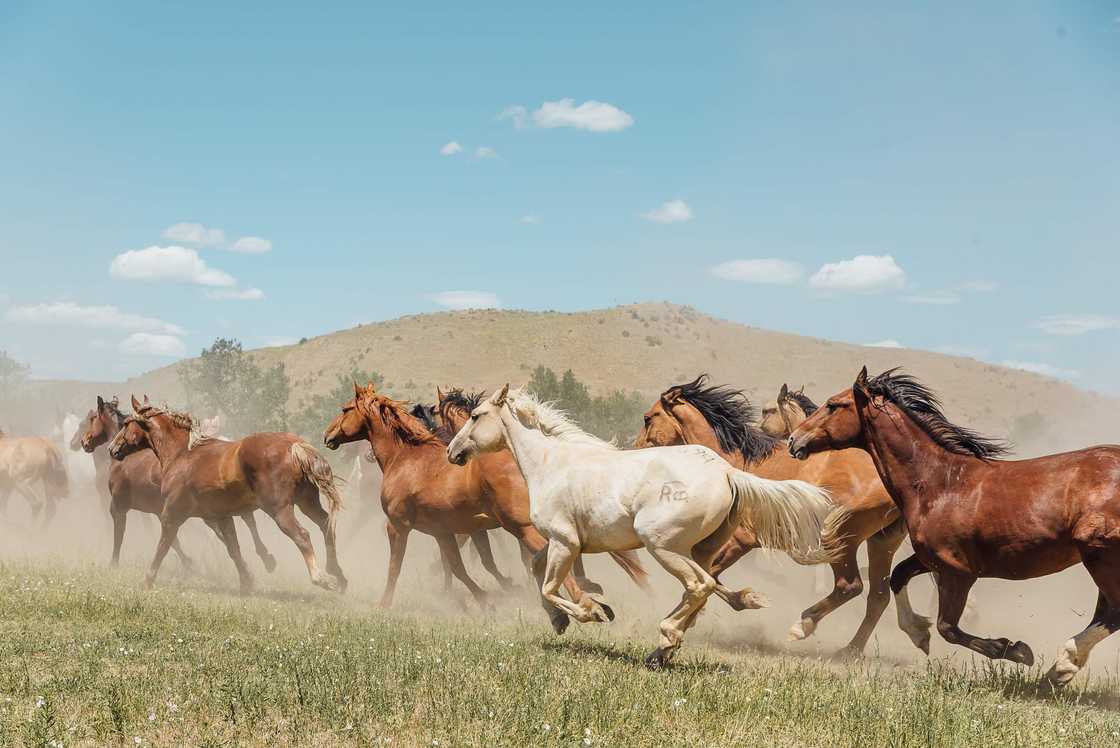
Source: Getty Images
FAQs
Genetic abnormalities in animals are not uncommon, but fiction is usually mistaken for scientific facts. Below are some frequently asked questions;
Can pets have Down syndrome?
Pets have not been diagnosed with trisomy 21. Unlike humans, who have 23 chromosome pairs, dogs have 39 pairs, while cats have 19 pairs. Both legal and illegal pets can have other conditions that exhibit symptoms similar to Down syndrome.
Are there cats with Down syndrome?
Cats have not been clinically demonstrated to have trisomy 21, nor have any cats been diagnosed with it. Cats have 19 pairs of chromosomes, which means they lack chromosome 21.
Why do bull terriers look like they have Down syndrome?
Bull terriers may exhibit features similar to those associated with trisomy 21, such as slanted eyes, physical frailty, and a flattened face. They can also have autism-like symptoms like compulsive tail chasing. However, none of these symptoms/features have been medically tied to Down syndrome.
Are there whales with Down syndrome?
Currently, there is no scientific evidence to back up the claim that whales can have Down Syndrome. They, however, experience genetic mutations.

Source: Getty Images
Are there giraffes with Down syndrome
Giraffes do not have the condition, but they can experience a genetic condition called skeletal dysplasia. This disorder leads to abnormally shaped bones in the spine, arms, legs, and head.
Are there lions with Down syndrome?
Like large cats, lions have 19 pairs of chromosomes. They lack chromosome 21 but can have other genetic or congenital conditions.
Are there otters with Down syndrome?
Otters cannot have trisomy 21. They may face other health issues like distemper virus and rare parasites.

Source: Getty Images
Down syndrome in animals is a notion that continues to be debated as scientists continue to dig deeper into animal health. If you suspect your pet or other animal has similar conditions, you should seek professional advice from a vet.
READ ALSO: Orange aura meaning: A guide to understanding orange energy
Briefly.co.za highlighted all you need to know about the orange aura. Aura is an energy field that is believed to surround all living things, and it comes in different colours and layers.
An aura reflects various aspects of a person’s physical, mental, spiritual, and emotional state. Visiting an aura reading specialist will help you understand the kind of energy field you have.
Source: Briefly News

